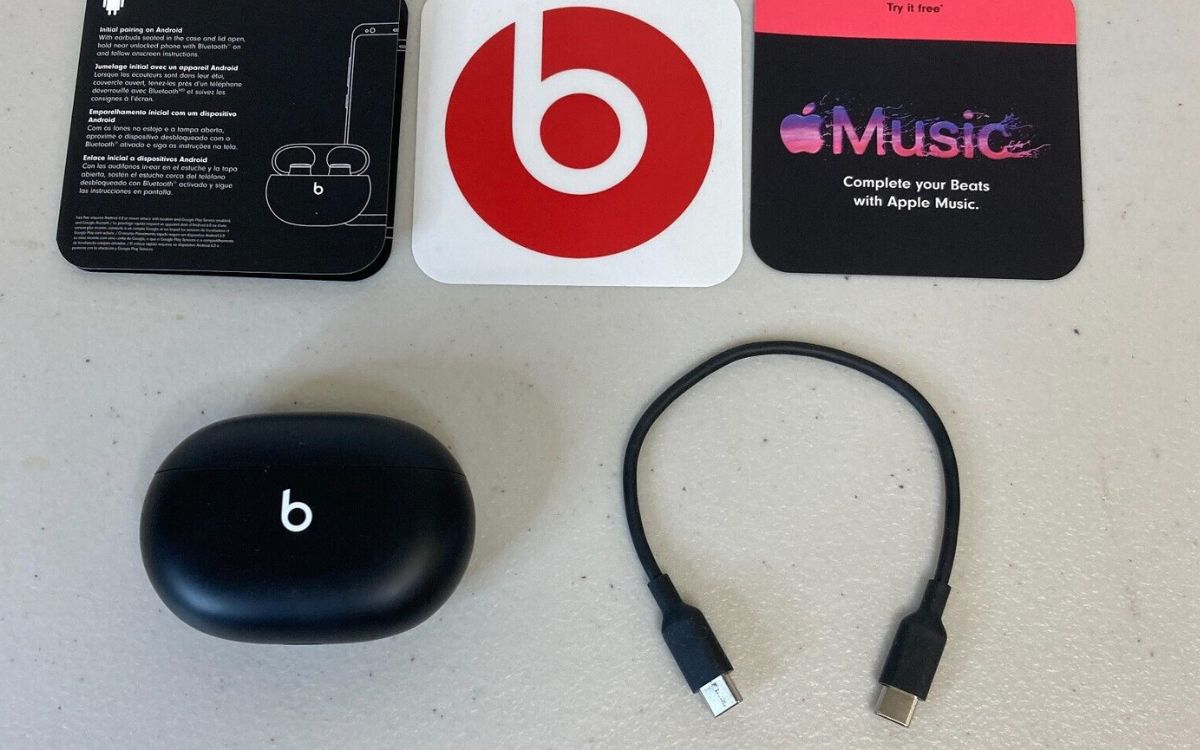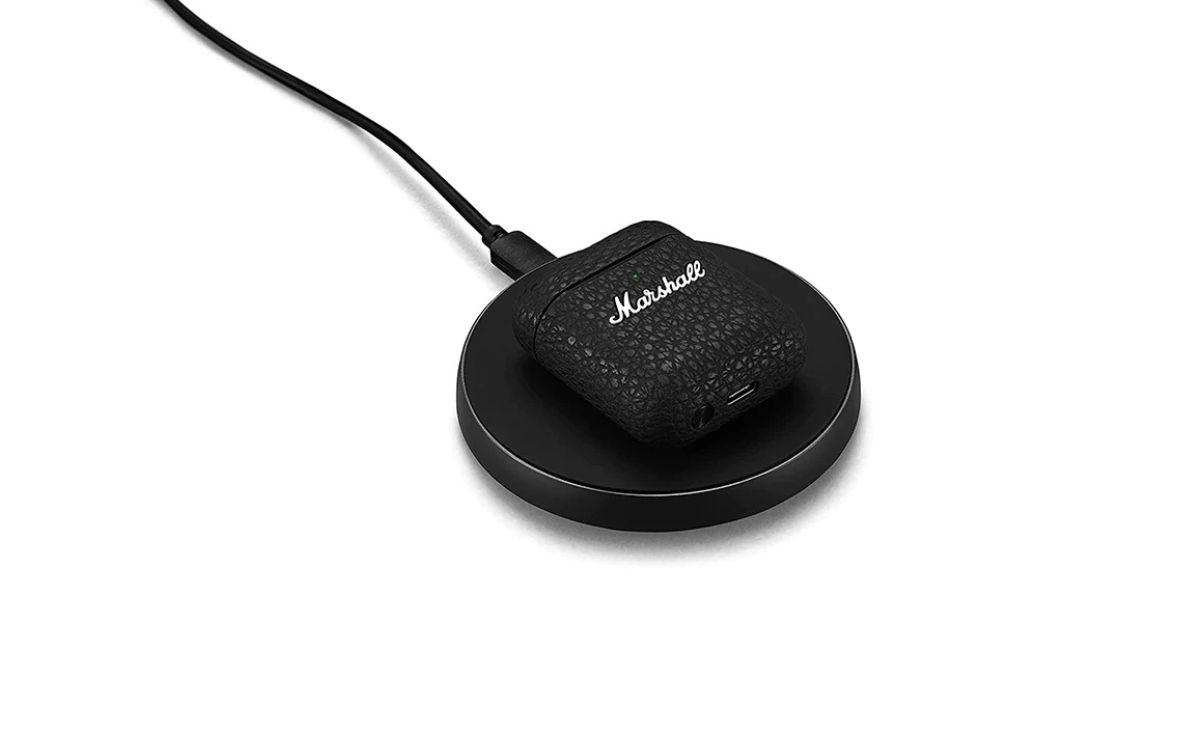Home>Production & Technology>Audiobook>What To Charge For Audiobook Narration


Audiobook
What To Charge For Audiobook Narration
Modified: January 22, 2024
Discover the rates and pricing guidelines for audiobook narration. Find out what to charge for your audiobook services and maximize your earnings.
(Many of the links in this article redirect to a specific reviewed product. Your purchase of these products through affiliate links helps to generate commission for AudioLover.com, at no extra cost. Learn more)
Table of Contents
- Introduction
- Factors to consider when determining audiobook narration rates
- Hourly rates versus per finished hour (PFH) rates
- Average rates for audiobook narration
- Negotiating rates and terms with authors and publishers
- Additional factors to consider for pricing audiobook narration
- Tips for effectively pricing your audiobook narration services
- Conclusion
Introduction
Audiobooks have become increasingly popular in recent years, providing a convenient and immersive way for people to enjoy their favorite stories and learn new things. Behind every successful audiobook is a skilled narrator who brings the characters and narratives to life through their voice. If you have a love for storytelling and a talent for narrating, you may be considering offering your services as an audiobook narrator. However, before you can embark on this exciting journey, it is important to understand how to price your audiobook narration services.
Determining the right rate for your audiobook narration can be a complex task. It involves considering various factors such as your experience, the length and genre of the book, your production quality, market demand, and more. By understanding these factors and following some key guidelines, you can ensure that you are offering competitive rates that fairly reflect your value as a narrator.
In this article, we will explore the key factors to consider when determining your audiobook narration rates, whether you should charge hourly or per finished hour (PFH), average rates in the industry, and tips for negotiating with authors and publishers. By the end, you will have a clear understanding of how to effectively price your audiobook narration services and position yourself in the market.
Factors to consider when determining audiobook narration rates
Setting the right rates for your audiobook narration services requires careful consideration of several factors. These factors will help you determine the value of your expertise and the effort required to bring a book to life through narration. Here are some key factors to take into account:
- Experience and skill level: Your level of experience and expertise as a narrator plays a significant role in determining your rates. If you have a proven track record and a portfolio of successful audiobook projects, you can justify charging higher rates.
- Book length: The length of the book directly affects the amount of time and effort you will need to invest in narrating it. Longer books may require more hours of recording, editing, and post-production work, which can impact your pricing.
- Genre and complexity: Some genres and complex narratives require specialized skills and vocal techniques. Narrating a challenging book that requires multiple character voices or intricate storytelling may command higher rates due to the additional effort and expertise involved.
- Production quality: The quality of your recording, editing, and post-production work is crucial for delivering a professional audiobook. Investing in high-quality equipment and software may justify higher rates, as it ensures a polished and enjoyable listening experience for the audience.
- Market demand and competition: Research the current market demand for audiobook narrators in your genre and region. Consider the rates charged by other professional narrators with similar experience and skill sets. Finding a balance between competitive pricing and fair compensation is essential in gaining clients and building your reputation.
These factors can help you establish a baseline rate for your audiobook narration services. Keep in mind that your rates should reflect the value you bring as a narrator, but should also be competitive enough to attract clients in a crowded and competitive industry. Assessing these factors will provide you with a starting point as you determine your pricing structure.
Hourly rates versus per finished hour (PFH) rates
When it comes to pricing your audiobook narration services, you have two primary options: charging hourly rates or per finished hour (PFH) rates. Both approaches have their pros and cons, and understanding them can help you make an informed decision.
Hourly rates: Charging by the hour is a straightforward method. You determine your desired hourly rate, track the time spent on recording, editing, and other related tasks, and invoice accordingly. Hourly rates are convenient if you have a good idea of how long it will take you to complete a project. However, it may be challenging to accurately estimate the time required, especially if it’s your first time working on a particular genre or book length.
Per finished hour (PFH) rates: The PFH model involves charging based on the final length of the audiobook. This rate is usually higher than the hourly rate, as it includes additional factors like editing, post-production work, and revisions. PFH rates are popular in the industry, as they offer more certainty for both the narrator and the client regarding the total cost of the project. However, keep in mind that the time spent on editing and post-production can vary depending on the complexity of the book and your proficiency in those areas.
Deciding between hourly rates and PFH rates depends on your preferences, the project requirements, and your experience level. Some narrators find that PFH rates provide more stability and clarity, while others prefer the flexibility of hourly rates. It is important to communicate clearly with clients about your pricing structure and ensure that both parties agree on the terms before starting the project.
In the next section, we’ll explore the average rates in the audiobook narration industry, which can serve as a useful benchmark for establishing your own rates.
Average rates for audiobook narration
When determining your rates as an audiobook narrator, it can be helpful to have an understanding of the average rates in the industry. While these rates can vary depending on factors such as experience, book length, and market demand, they provide a useful benchmark for setting your pricing structure.
On average, narrators can expect to earn anywhere from $100 to $400 per finished hour (PFH) of recorded audio. However, it is important to note that this is a general range, and rates can vary significantly based on the factors mentioned earlier. Experienced narrators or those with a notable reputation may command higher rates, while newcomers to the industry may start at the lower end of the spectrum.
It is also important to consider the audiobook distribution model when determining rates. For traditional publishing deals, where authors and publishers have established relationships with audiobook production companies, rates may be negotiated and dictated by industry standards. On the other hand, for independent authors or small publishers, negotiations may be more flexible, providing opportunities for narrators to set their rates within reason.
Aside from PFH rates, it is also common for narrators to negotiate royalty-sharing agreements. In these cases, narrators receive a percentage of the audiobook’s sales. Such agreements can be beneficial if the audiobook becomes successful and generates significant revenue.
Remember that these rates are just guidelines, and it is crucial to consider your unique circumstances and value as a narrator when setting your rates. Conducting market research, reviewing industry resources, and seeking advice from experienced professionals can help you determine appropriate rates for your services.
In the next section, we will delve into the important topic of negotiating rates and terms with authors and publishers.
Negotiating rates and terms with authors and publishers
When working with authors and publishers as an audiobook narrator, negotiating rates and terms is a crucial aspect of the business relationship. Effective negotiation ensures that both parties are satisfied with the agreed-upon terms and paves the way for a successful collaboration. Here are some tips to help you navigate the negotiation process:
- Research and preparation: Before entering into negotiations, gather information about the author, publisher, and the specific audiobook project. Understand the market demand, industry standards, and the reputation of the author and publisher. This knowledge will give you a competitive edge and help you set realistic expectations.
- Know your worth: Understand your own value as a narrator and the unique skills and expertise you bring to the table. Be confident about your rates and justify them based on factors such as experience, book length, and production quality. This confidence will help you negotiate from a position of strength.
- Be clear and transparent: Clearly communicate your rates, payment terms, and any additional fees or royalties you expect. Ensure that both parties are on the same page regarding pricing before moving forward. Transparency builds trust and avoids any misunderstandings or conflicts down the line.
- Consider the project scope: Assess the complexity of the book, the time and effort required to complete the project, and any additional factors that may impact your rates. Adjust your rates accordingly and be open to negotiation based on these factors.
- Explore alternative agreements: Consider flexible arrangements such as royalty-sharing agreements, where you receive a percentage of the audiobook sales. This can be a win-win situation if you believe in the potential success of the audiobook and are willing to take on some risk in exchange for potentially higher earnings.
- Build professional relationships: Establishing strong relationships with authors and publishers can lead to repeat business and referrals. Focus on developing a positive and collaborative rapport during negotiations to foster long-term partnerships.
Negotiating rates and terms is a balancing act that requires careful consideration of your own value, industry standards, and the specific project requirements. By being prepared, confident, and open to alternative agreements, you can navigate negotiations successfully and establish mutually beneficial relationships with authors and publishers.
In the next section, we will explore additional factors to consider when pricing your audiobook narration services.
Additional factors to consider for pricing audiobook narration
When determining your rates as an audiobook narrator, there are several additional factors to consider beyond experience and book length. These factors can greatly impact the time, effort, and value you bring to the project. Taking them into account will help you ensure fair pricing for your services. Here are some important factors to consider:
- Editing and post-production work: Apart from the actual narration, you may also be responsible for editing the audio files, removing mistakes, and enhancing the overall quality. Factor in the time required for these tasks when determining your rates, as they can significantly contribute to the overall project workload.
- Revisions and retakes: Authors or publishers may request revisions or retakes after the initial recording. Discuss the number of revisions included in your rates and establish a clear agreement on additional fees for extra revisions. This will ensure that both parties are aligned on expectations and prevent any potential disputes in the future.
- Unique character voices: Some books may require you to perform distinct character voices, adding additional complexity and effort to the narration. Consider charging higher rates for books that demand extensive character work, as it requires a higher level of skill and creativity.
- Additional services: If you offer additional services such as proofreading the manuscript, providing guidance on pronunciation, or assisting with marketing materials for the audiobook, you can factor these into your rates. These value-added services can set you apart from other narrators and justify higher pricing.
- Exclusive contracts: If an author or publisher requests exclusive rights to your narration for a certain period of time, consider adjusting your rates accordingly. The exclusivity can limit your opportunities to take on other projects and should be reflected in the compensation you receive.
Considering these additional factors will help you accurately assess the time, effort, and value involved in narrating an audiobook. It is important to be transparent with clients about any additional fees or considerations, ensuring that both parties have a clear understanding of the scope of work and associated costs.
In the next section, we will provide some tips for effectively pricing your audiobook narration services to position yourself in the market.
Tips for effectively pricing your audiobook narration services
Pricing your audiobook narration services appropriately is essential to attract clients, establish your value, and ensure a sustainable income. Here are some valuable tips to help you effectively price your services:
- Research the market: Familiarize yourself with industry rates and trends. Understand what other narrators with similar experience and skillsets are charging for their services. This will provide you with a baseline and help you set competitive rates.
- Evaluate your expertise: Assess your level of experience and skill as a narrator. Consider the quality of your voice, ability to perform various characters, and your overall professionalism. Use this evaluation to determine the value you bring to the table and justify your rates accordingly.
- Consider your niche: If you specialize in a specific genre or niche, such as children’s books or non-fiction, you may be able to charge higher rates due to your specialized skills and familiarity with the audience expectations within that genre.
- Factor in your production quality: If you invest in high-quality equipment and produce polished audio recordings, you can justify higher rates. Highlight the professionalism of your production to add value to your services.
- Offer packages or bundles: Consider offering different pricing options, such as discounted rates for longer audiobooks or package deals that include additional services. This can attract clients and provide them with flexibility in choosing the services that best suit their needs.
- Build your portfolio: As you gain experience, build a strong portfolio of successful audiobook projects. Having a diverse and impressive portfolio will help you command higher rates as clients will see the value you offer through your past work.
- Be open to negotiation: Negotiation is a common part of the business. Be open to discussions with clients, particularly if it aligns with your long-term goals or offers beneficial exposure or opportunities.
- Regularly reassess your rates: As you gain experience and your skills improve, periodically reassess your rates. Adjust them accordingly to reflect your growth and increased value in the industry.
Remember, finding the right balance between pricing competitively and valuing your time and skills is crucial. Assess your own worth, know the market, communicate clearly with clients, and be open to negotiation. By following these tips, you can position yourself effectively in the industry and attract clients who appreciate your talent and dedication.
As a final note, remember that pricing is not just about the numbers. It is about finding a fair balance that reflects your expertise, the effort you put into each project, and the value you provide as an audiobook narrator.
By considering all these factors and implementing these tips, you will be well-equipped to effectively price your audiobook narration services and thrive in the industry.
Conclusion
Pricing your audiobook narration services requires careful consideration of various factors, including your experience, book length, genre, production quality, and market demand. By understanding these factors and following some key guidelines, you can ensure that you are offering competitive rates that reflect your value as a narrator.
Whether you choose to charge hourly rates or per finished hour (PFH) rates, it is important to communicate your pricing structure clearly with clients and negotiate terms that are mutually beneficial. Research industry averages, assess your unique skills and expertise, and factor in additional considerations such as editing work, revisions, character voices, and exclusive contracts.
When pricing your services, strive to strike a balance between being competitive in the industry and valuing your time and skills appropriately. Regularly reassess your rates as you gain experience and always be open to negotiation.
Remember that pricing is not just about the numbers; it is about establishing fair compensation for the effort and value you bring to each project. By following the tips outlined in this article, you will be well-equipped to effectively price your audiobook narration services and position yourself as a skilled and sought-after narrator in the industry.
Embrace the art of storytelling, deliver exceptional performances, and let your unique voice captivate audiences in the world of audiobooks. Happy narrating!











